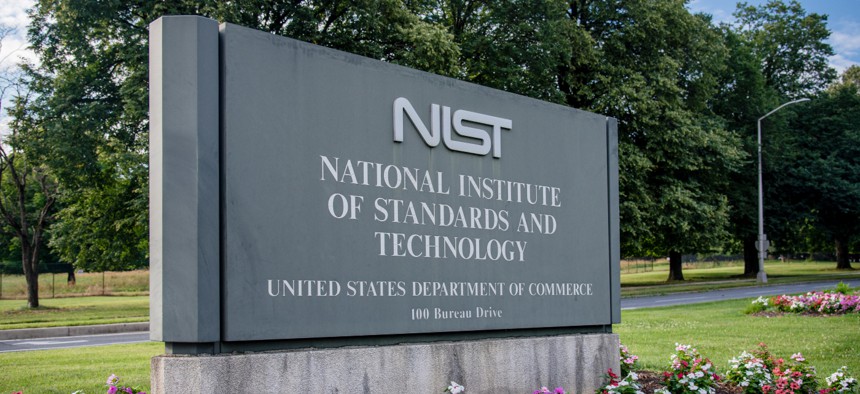
J. Stoughton/NIST
Can NIST get it all done?
The small technology agency has a big share of the responsibility for executing on the Biden administration's executive order on artificial intelligence.
The National Institute of Standards and Technology was founded in 1901 to meet the growing demand for standardized scientific measurements to advance technical and industrial research and development. More than a century later, the agency is riding point on an all-of-government effort to respond to the rapid growth of artificial intelligence with standards and best practices.
The Biden administration's October 2023 executive order on AI gives NIST a prominent role in cultivating testing standards to ensure AI-enabled software products are designed safely and securely before being introduced to market. It also tasks NIST with developing guidelines for industry to safely deploy AI systems, evaluating foundation models and reducing fraudulent content generated by AI and machine learning softwares, among other responsibilities.
But questions abound about the ability of the agency — with a staff of about 3,400 and an annual budget of just over $1.6 billion — to meet the growing demand for its services in AI and across a variety of emerging technologies, including cybersecurity and quantum computing.
Ahead of the executive order, the agency launched its Trustworthy and Responsible AI Resource Center in March 2023. It's also in the midst of fielding comments from the public testing AI softwares to meet safety standards.
"NIST is championing the development of AI systems that are trustworthy and responsible in practice and use, and has positioned itself as a domestic and international leader in cultivating trust in the design, development, use and governance of AI systems," agency director Laurie Locascio said at a May 2023 budget hearing.
NIST's press office declined to answer questions or offer comment for this story.
Moving into 2024, steady funding will be critical to NIST’s continued work in establishing baseline metrics to test AI systems. Its fiscal year 2024 discretionary budget request is roughly equivalent to 2023 and includes a $20 million increase for advancing research in critical and emerging technologies, a category that encompasses AI. Within that request, $5 million is intended for AI research, focused on engaging with the private sector, academia and government partners to continue developing benchmarks for AI.
Locascio said this funding "will expand NIST’s capacity to build the confidence and trust in AI systems necessary for U.S. businesses to take full advantage of transformational technologies."
Heather West, senior director of cybersecurity and privacy services at the law firm Venable, told Nextgov/FCW that NIST faces an uphill battle developing universal definitions in an ambiguous, evolving area.
“NIST would really benefit from additional resources here, whether that's time, money or brainpower, to make sure that they're doing this well and doing it right because I know that they really want to do that,” West said. “But the resource constraints will become very clear at some point.”
A February 2023 report from the Government Accountability Office found that the agency could improve its efforts to track the effectiveness of the hiring and pay flexibilities it uses to recruit and retain critical personnel and do a better job of planning for future workforce needs.
Varun Krovi, director of government relations and public policy at the Center for AI Safety Action Fund, added that despite the growth in NIST’s budget and workforce, the agency could still benefit from increased funding.
“While funding for NIST has grown over the years, the actual numbers pale in comparison to the responsibilities delegated to the agency,” Krovi said. “The AI Risk Management Framework is a clear example of NIST's outstanding track record for keeping pace with innovation and progress in AI despite the funding challenges.”
In January, four senators urged the Senate Appropriations Committee to allocate an additional $10 million to help launch the U.S. Artificial Intelligence Safety Institute within NIST to further its AI work.
Krovi said that while Congress is clearly aware of NIST’s funding shortfall, how much extra support NIST will receive remains unknown.
“Recent bipartisan efforts to fund the U.S. AI Safety Institute are a positive sign and a step in the right direction,” he said.
NEXT STORY: A thumbs-up for State's 3-year-old cyber bureau







